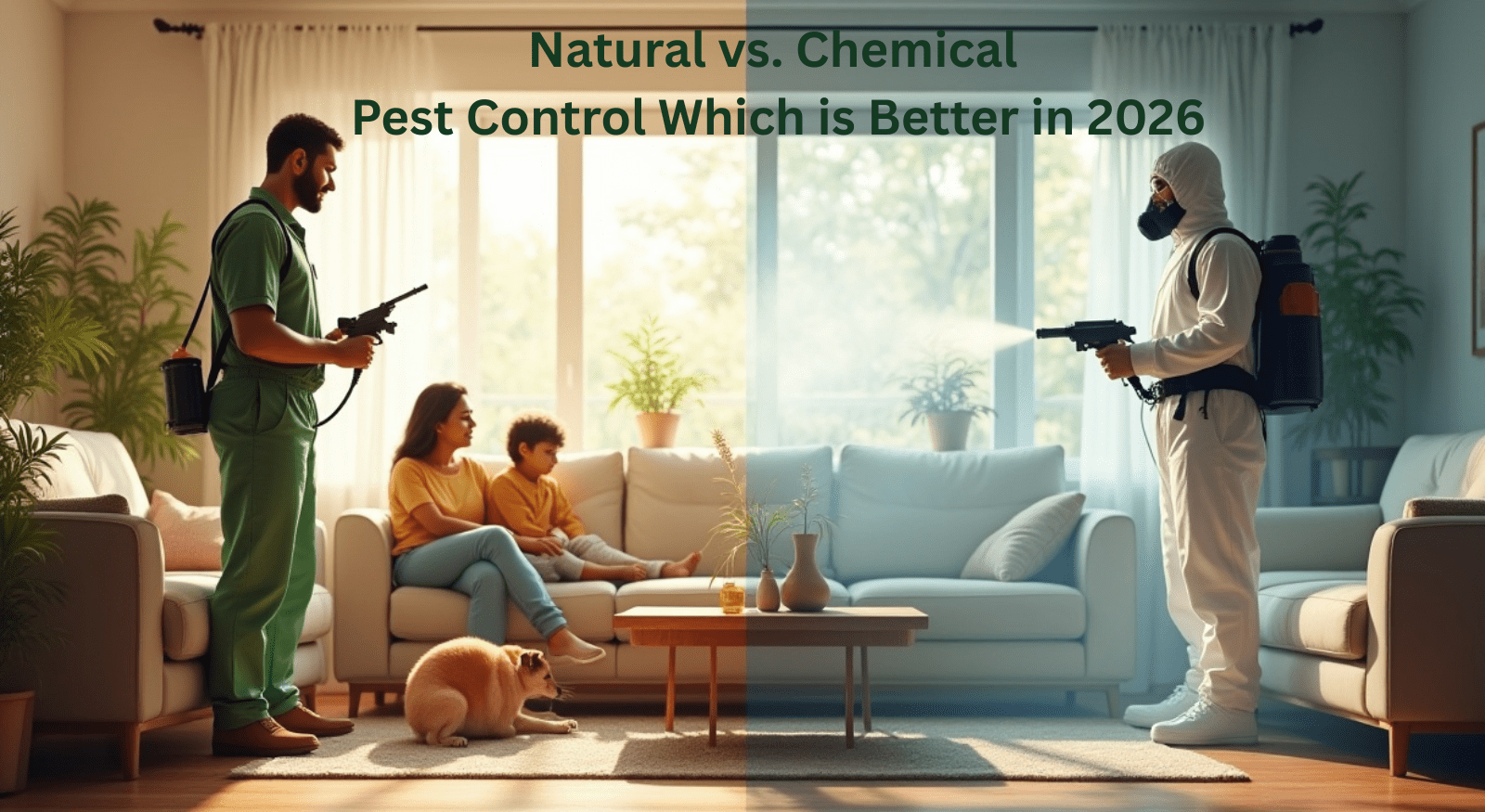Natural vs. Chemical Pest Control: Which is Better in 2026?
- Home
- Natural vs. Chemical Pest Control: Which is Better in 2026?





As we step into 2026, the urgency to choose safe, sustainable living practices is no longer a trend—it’s a necessity. One major area where this choice is critical is natural vs chemical pest control. Pests can be annoying and sometimes harmful, but the chemical solutions used to eliminate them are often far more dangerous than the pests themselves.
The modern household is a haven for children, pets, and elderly members. Unfortunately, it’s also a place where toxic pest control chemicals are often sprayed without understanding their long-term effects. These chemical pesticides, designed to kill pests instantly, linger in the air, settle on furniture, and soak into mattresses, floors, and kitchen surfaces.
Over time, these residues can lead to a range of health issues:
Young children and pets, who are naturally closer to the ground and prone to touch or mouth objects, are particularly vulnerable. Even a small amount of pesticide residue on the floor can be enough to trigger a health issue. In the pursuit of eliminating pests, we may be poisoning our homes.
Beyond our homes, chemical pest control wreaks havoc on the environment. When sprayed outdoors, these chemicals don’t just vanish—they seep into the soil, leach into groundwater, and contaminate rivers and lakes. The impact includes:
Natural vs chemical pest control highlights a critical choice. Chemical pesticides, even in gardens or farms, degrade soil fertility over time. The soil becomes barren, dependent on synthetic fertilizers, stripping the earth of its natural balance—while natural methods protect long-term health and productivity.
In contrast, Natural pest control methods are rooted in plant-based or mineral-based ingredients, making them non-toxic, biodegradable, and safe for both humans and the environment. These solutions do not kill indiscriminately. They *repel pests while leaving beneficial organisms unharmed, allowing nature to maintain its own checks and balances.
Natural pest control products are designed to be family-friendly, with no risk of inhalation or skin contact hazards. They can be sprayed safely in kitchens, bedrooms, and living areas, providing peace of mind for households with children, elderly members, or pets.
One of the often-overlooked benefits of natural pest control is its positive impact on plant health. Chemical pesticides also disrupt the micro-ecosystem of the soil, making it harder for plants to absorb nutrients. In contrast, natural methods promote:
As a result, plantations and gardens flourish under a natural care regime. Whether it’s home gardens, terrace pots, or farmlands, adopting chemical-free pest control practices enhances greenery, supports pollinators, and increases biodiversity.
Soil is not just dirt—it is a living, breathing ecosystem that supports nearly all forms of life on Earth. The use of harsh chemicals in pest control contributes to soil erosion, nutrient depletion, and biodiversity loss.
In contrast, natural pest control helps preserve the integrity of soil, ensuring it remains fertile for future generations. Healthy soil retains more carbon, which in turn helps combat climate change. It also supports underground organisms that are essential for decomposition, nutrient cycling, and plant growth.
Chemicals Are Deadlier Than Pests
In 2026, we must ask ourselves: are we solving one problem only to create a bigger one? The answer is clear. Chemical pest control might eliminate pests today but creates long-term damage to health, soil, water, and air. It compromises the safety of our homes and the sustainability of our planet.
Natural vs. chemical pest control goes beyond eliminating pests—it’s about protecting life. It keeps families safe in toxin-free homes, improves soil health, supports greener plantations, and restores balance between humans and nature.
Choosing natural is not just a preference anymore—
IT IS OUR RESPONSIBILITY For our FAMILIES. For our ENVIRONMENT. For our FUTURE.